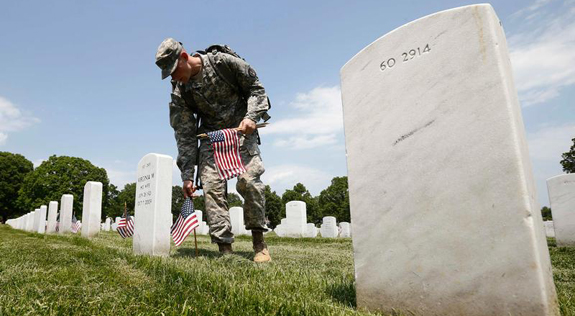

The Catholic Church observed the Feast of the Exaltation of the Holy Cross last week on September 14. It happens also to be my birthday, so I have a particular fondness for this feast. Another title for it is the “Triumph of the Cross,” which alludes to that strange Christian paradox in which our Lord’s apparent defeat was actually our victory. It is a powerful and inescapable image for believers and it draws my attention to the parallel between this feast and the scene in Dante’s Paradiso where he beholds the vision of the cross on Mars. Here the mighty warriors of the faith make their appearance as well, an interesting counterpoint to the Crucified One.
Cacciaguida, Dante’s forefather and guide to the fifth sphere, introduces him to the warriors proceeding from the cross who once valiantly defended the faith against the threats of their day. Dante’s ancestor sings their praises like a balladeer of old. “Those spirits are blest who were of great renown/ on earth before they came to Paradise/ leaving abundant spoils for poetry” [1] (Canto 18.31-33). Anthony Esolen comments, “Dante associates poetry with the same sacrifice of the self that is demanded by participation in a just war; to fail to fight is akin to failing to sing.” It sounds so poetic and pristine, and yet as a veteran of the present conflict in the Middle East, I know that war is anything but.
We have been at this war—who can even say if it is just?—for nearly 15 years. Many of my comrades have deployed and returned, deployed and returned (“wash, rinse, repeat”) so often that they have either settled into stoic apathy, or else unraveled into emotional and physical train wrecks. The devastation is pervasive, and includes divorce, depression, suicide, violence, and self-medication (with drugs, alcohol, sex, etc.). In a recent two-week stretch, I encountered the following situations among my troops: four sailors suffering from PTSD; two accused of domestic abuse; one who was committed to a psychiatric hospital after a suicide attempt; one whose parents we had to notify of his completed suicide; one who was arrested for lewd acts with a minor; and one whom I had to discipline and discharge for unlawful drug use.
What, if anything, can Dante say to me as a military leader immersed in the day-to-day anguish of war’s devastation? Plenty, as it turns out. Beginning with the opening lines of The Inferno, who doesn’t identify with Date’s plight?
Midway upon the journey of our life
I found myself within a forest dark,
For the straightforward pathway had been lost.
In fact, the theme of a journey back to wholeness has been very helpful for returning warriors seeking to make some sense of their experiences. “The Hero’s Journey” is how some support networks characterize it. Dante’s experience as an exile who is alienated from everything dear to him also resonates in Cacciaguida’s prophecy: “You’ll leave behind you everything you love most dearly: this will be the arrow shot first from the bow of exile” (17.55). Dante’s own response to this news is also instructive: “Then I should arm myself with prudence now, that if they take from me my dearest land, I won’t lose all the rest by what I sing” (17.109-110).
In the final analysis, however, I believe it is the cross that can ultimately save us. The Exaltation of the Cross consists in this: that we freely take up our own crosses in imitation of our Savior with the sure knowledge that all meaning and fulfillment in our lives comes through His sacrifice upon the tree. This truth is so glorious that Dante’s memory is almost incapacitated by his first sight of the crucified Lord: “Who takes up his cross and follows Christ/ will pardon what I pass by in this place/ seeing in that bright tree the light of Christ” (14.106). It reminds me of a Lenten prayer: We adore you, O Christ, and we bless You, because by Your holy cross, You have redeemed the world.
The meditation from my Magnificat magazine on this feast day said it perhaps best of all: “The cross isn’t a mystery of bravery but a mystery of love. It doesn’t consist in suffering courageously, nor merely in suffering, full-stop, but in being afraid of suffering; it doesn’t consist in overcoming an obstacle but in being crushed by it; not in being strong and noble-hearted but in being small and absurd in one’s own eyes; not in deploying virtue but in seeing all one’s virtues routed and pulverized; and in accepting all this lovingly. And in accepting lovingly to be strengthless; strength is no use, love is what’s needed.” [2]
What love, you ask?
“The Love that moves the sun and the other stars” (33.145).
[1] Alighieri, Dante. Paradise. Translated and edited by Anthony M. Esolen. New York: Modern Library, 2004.
[2] Magnificat, Vol. 18, No. 7, September 2016, p. 188. Quoted from The Little Way, The Spirituality of Therese of Lisieux by Bernard Bro (Father, O.P.)
If you value the news and views Catholic World Report provides, please consider donating to support our efforts. Your contribution will help us continue to make CWR available to all readers worldwide for free, without a subscription. Thank you for your generosity!
Click here for more information on donating to CWR. Click here to sign up for our newsletter.

